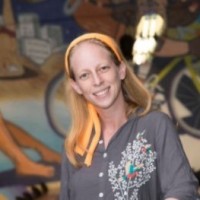With every technological advance, life has become faster and conveniences have increased. Before the advent of the internet, you had to visit an auction house if you wanted to bid on an item. You might have to go to the effort of lifting a paddle to bid! Before mobile phones, you had to use a payphone to call someone if you were out and about. You might have even had to wait if someone else was using it!
Do you even remember the last time you went to your bank to deposit cash?
For trading and markets, the advent of the internet changed everything. In the 90’s online brokerages began and changed the financial landscape. Trading volumes increased as everyday people jumped at the chance to trade. This particularly revolutionised the forex market, which was the domain of the banks until that point. Now, with so much currency trading going on everywhere by anyone, trading volumes have even exceeded the 5 trillion dollar mark.
Not only that, technological advances have meant that tiny countries, with few or limited natural resources, have been able to join and even thrive on the back of the new technology-driven global economy. Countries like Israel, on a tiny tract of land in constant disagreement with its neighbours, has developed a technological industry that is the envy of the world. Dubbed the “startup nation” for the extraordinary number of startups it has within its narrow borders within just 70 years of its nationhood!
At the other end of the spectrum, the sleeping giants have begun to emerge. China and India, with a combined population of more than 2 billion, has begun to join the world stage and embrace the opportunities in the new world market.
And that’s only the larger trends. Instability within the European Union, terrorism, North Korea, South Korea, Marilyn Monroe”¦ Sorry, I couldn’t help myself, but the message of the song is the same.
With all this happening, and happening faster and faster (as technology gets better and integration becomes more seamless), how do you pick your segment to trade?
One interesting holistic option that takes advantage of the larger macroeconomic trends is the forex market. The value of each currency is a snapshot of the varying economic conditions of a country, so in some ways, it takes into account the changing tides and times of the country as a whole. The ability to buy it against another currency adds a factor that allows you to speed up the value inherently. By buying a currency that is expected to strengthen, and pairing it against a currency expected to weaken, you are adding two drivers designed to provide profit opportunities individually. Adding the two together gives you greater scope for profit.
The challenge in this is to pick right. And with the pairs it is not just once, but twice. Most will trade against a stable currency, and because of the short-term volume, it is likely to reflect healthy trading conditions.
The more common way is to identify growth opportunities and hone in on them. Small, non-developed countries with low wages tend to have a great scope for comparative advantage. These growth markets or even market segments are the way that most of the world’s global fund managers trade. The devil is in the detail, however. Like anything, the challenges of scaling up can be daunting. Often, without good leadership or solid political management, countries can waste their comparative advantage and remain mired in their current undeveloped state. For all the talk of growth, it is important not to simply follow the institutional money or the direct foreign investment, but also to find out how far a country has to go to be an effective vessel to exploit this advantage, and whether the vessel leaks or not.
But doing this will allow you to ride a wave of growth that should provide you with high returns. There is a risk in this approach, but also tremendous benefits.
